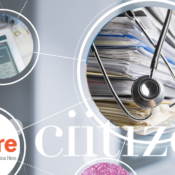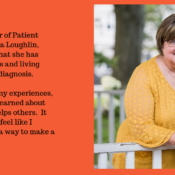Author: Laura Loughlin
Ciitizen – a new way to control your health data
My life changed in 2016 following a diagnosis of advanced kidney cancer. Going from doctor to doctor, the importance of accessible and shareable medical records became very clear to me. I still recall one day when I had to drive to THREE different hospitals to obtain copies of reports and images, to ensure they got to a new specialist in time for a scheduled appointment. I’m happy to report there...
ASCO 2019 News
The theme for this year’s ASCO (American Society of Clinical Oncology) annual meeting was Caring for Every Patient, Learning from Every Patient. This theme perfectly represents what the meeting is all about. Researchers, doctors and industry from around the world coming together to improve the lives of cancer patients. Interestingly this meeting is not attended by patients, but i...
KCCure – Finding Quality of Life – Palliative Care
In the making a difference series, KCCure’s Director of Patient Engagement, Laura Loughlin, shares how connecting with palliative care improved her quality of life during radiation treatment, and explores how palliative care services can improve the quality of life for both patients and their families. When I was first diagnosed in 2016 with stage 4 RCC an oncologist told me that from that point f...
Making a Difference – Rare Kidney Cancer Research
In the making a difference series, KCCure’s Director of Patient Engagement, Laura Loughlin, will be highlighting organizations making a difference in Kidney Cancer research. In this article we are profiling the work being done at The Rare Cancer Research Foundation (RCRF), with focus on their patient directed consent platform Pattern.org. The Rare Cancer Research Foundation (RCRF) is a 501(c)3 non...
Making a Difference – The Broad Institute
In the Making a Difference series, KCCure’s Director of Patient Engagement, Laura Loughlin will be highlighting organizations making a difference in Kidney Cancer research. In this first article, we’re profiling work being done at the Broad Institute researching rare kidney cancer. The Broad Institute of Cambridge and Harvard Located in Cambridge, MA the Broad is a non-profit research...
Gene Therapy – An RCC Clinical Trial at the NIH
KCCure highlights new and exciting research in kidney cancer at the NIH as well as an RCC clinical trial that is open now for kidney cancer patients.






